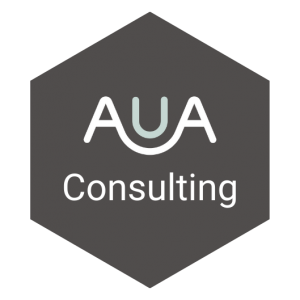Future HE Professionals | What our survey revealed
The AUA has a heritage of 60 years connecting and developing higher education professionals in support of UK higher education.
Looking ahead to the next phase in AUA’s development, this report is one output from a collaborative project led by AUA during 2019-20: Future HE Professionals.
The project included background research, a sector-wide survey which attracted more than 2000 responses, and wide-ranging stakeholder consultation. Overall project aims were to:
- Identify future development needs – the skills and attributes to equip professional services for the changing future of HE
- Understand how professional services roles are developing in the context of a changing HE sector
- Support the continued success of UK higher education.
Future HE Professionals was commissioned and directed by the AUA Board of Trustees. Project delivery was supported by AUA Consulting.
What our survey revealed
1) The Future HE Professionals survey was open from 3-28 February 2020. The survey focussed on future trends in working life, and associated development needs. We received just over 2000 completed responses. 60% of responses were from non-members of AUA. Around 40% indicate they work in a ‘central’ professional services role. A similar proportion characterise their role as ‘generalist’, while 20% of respondents are in ‘specialist’ roles. More than half have people management responsibilities. Around 60% of respondents report a salary range from £23-45k and nearly 30% are paid more than this. Respondents are a relatively stable group in employment terms: 56% have worked at their current institution for more than 5 years; nearly 40% for more than 10 years. Nearly 60% of respondents have worked in higher education for more than 10 years and c70% expect to remain in the sector over the next 5-10 years.
2) We asked those completing the survey to reflect on opportunities for development in HE professional services. Survey responses reveal some concern around institutional commitment to (and investment in) professional development for professional services staff, including a perceived absence of defined professional career structures/pathways in the view of some respondents: 77% report being actively encouraged in development by their employer.
3) The survey introduced a number of ‘mega trends’ characterising the future of work which had been highlighted in the research phase of FHEP. There was a mixed picture regarding survey respondents’ appreciation of the likely impacts in HE. While 93% foresee significant impact arising from technological developments, only around 65% think the same in respect of demographic shifts or climate change/sustainability and only 35% expect an impact arising from the Gig economy. Respondents might be correctly identifying a limited impact from these issues in HE or failing to appreciate the significance of global trends in their context.
4) We invited respondents to indicate their expectations regarding future professional skills needs. A high proportion (in the range 70-90%) agree that the key skills/attributes suggested by the research phase of FHEP will be important for professional services into the future. These include:
• Judgement and decision making
• Creativity
• IT skills development
• Social and emotional skills
• Personal agility and resilience, including workplace wellbeing
• A commitment to ongoing learning in a context of change
Respondents also highlighted the importance of skills associated with collaboration and influencing, including stakeholder/matrix relationships and what some describe as ‘strategic networking: managing up and across’.
5) Nearly all respondents (90%) expect moderate or significant change in their role over the next five years. In line with this, support in relation to change management is identified as a development priority, alongside management/leadership skills and project management competence. Other development needs highlighted include:
• Improved skills in the area of finance/budgeting/business planning.
• Process improvement – going beyond efficiency with an emphasis on ‘doing more with less’ while also making work valuable and meaningful. There is a link here to the emergence of ‘super-jobs’ (blended with IT) revealed in the research phase of FHEP, with the potential for particular impacts in areas like student learning/experience support and currently core administrative functions (eg admissions).
• Targeted opportunities for networking/sharing practice/job shadowing.
• An interesting set of free text comments point to the need for further support for ‘non-traditional’ career pathways (eg roles on the professional services/academic boundary), to assist individual career planning in the absence of institutional frameworks, and in relation to support for career transitions (eg reducing FTE, retirement planning).
This report has been produced by AUA Consulting. AUA Consulting is about improving HE professional services practice and developing professional services performance.
It is a consulting practice that is ‘of the sector for the sector’ – our consultants are practitioners in higher education administration and management. For clients this means we combine the benefits of an external perspective with sector specific expertise.

Any financial surplus derived from AUA Consulting is reinvested to support the AUA’s charitable objectives – connecting and developing HE professionals – for the benefit of our members in support of the HE sector.
Find out more at www.aua.ac.uk/aua-consulting
